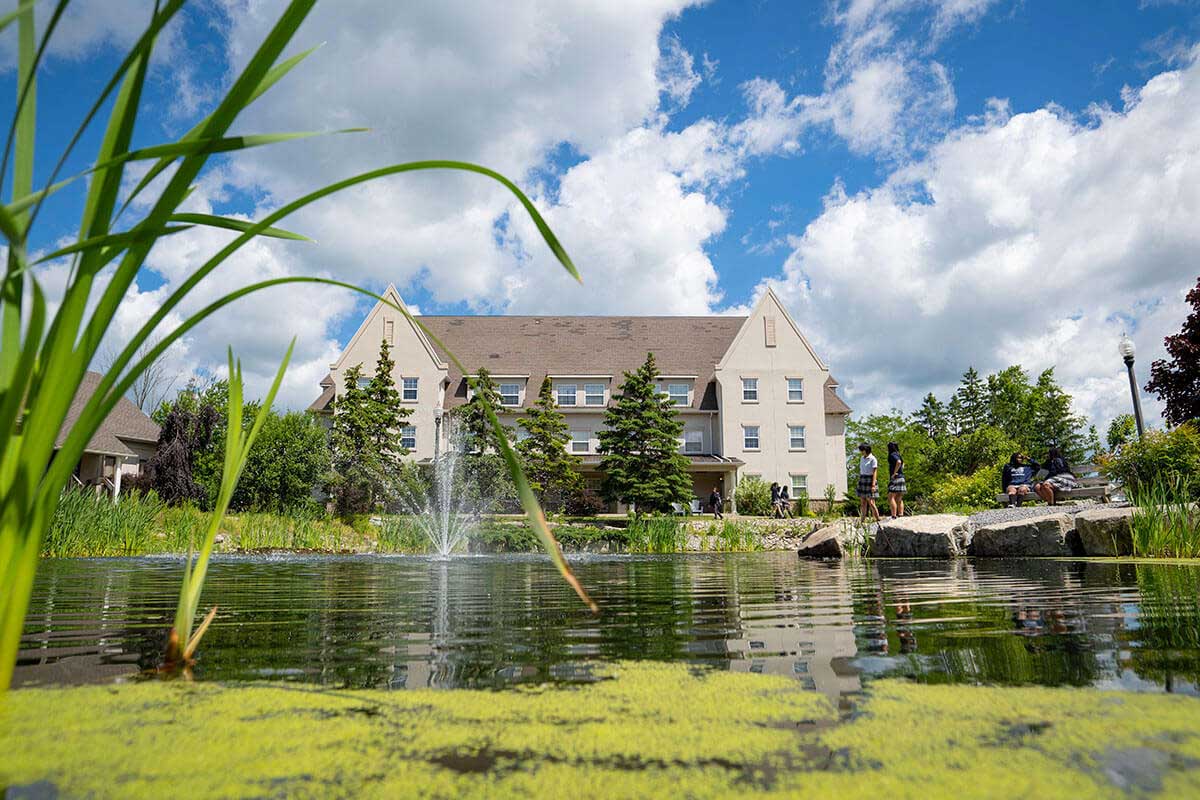Niagara Christian Collegiate THE OUR KIDS REVIEW
The 50-page review of Niagara Christian Collegiate, published as a book (in print and online), is part of our series of in-depth accounts of Canada's leading private schools. Insights were garnered by Our Kids editor visiting the school and interviewing students, parents, faculty and administrators.
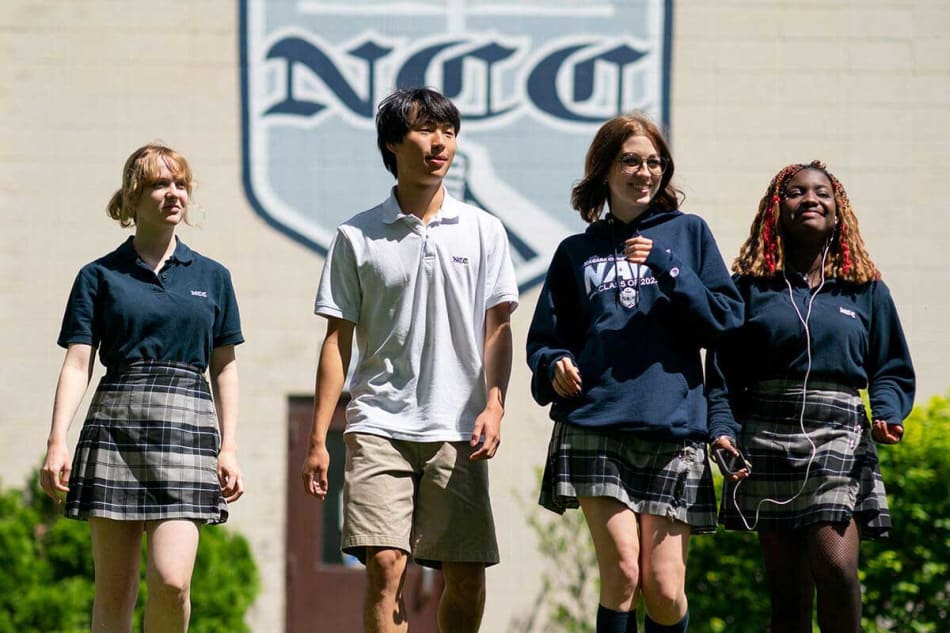
Introduction
Niagara Christian Collegiate (NCC) provides individualized attention to a diverse student body, all in a close-knit, supportive environment. The overarching feeling at NCC is one of warmth as family-like values have always been built into the school’s programs. This mindset is something long-time math teacher Larry Moss agrees with, saying, “NCC is like one big family. The faculty and staff here know every student’s name.”
Given that more than half of the students are boarders from around the globe, there’s a very intentional effort to create the atmosphere of being a “home away from home.” The breadth of geographic and cultural diversity among students makes for lively discussion in the cafeteria and classroom alike, yet there’s a tangible sense of unity among students. There’s no evidence of any division even when it comes to local and international students. Rather, students speak with pride about attending a school where their friends’ homes might be 10 or 10,000 kilometres away.
Academic excellence is of top priority for both students and teachers at NCC. The expectations are high, but so is the level of support. Small class sizes and an emphasis on strong teacher-student relationships set students up for success. “Sometimes we’ll have a class with five people, and our teachers really get to know us and our strengths,” says one Grade 12 student. Not only is there a 100 percent post-secondary acceptance rate but graduates consistently report feeling more than prepared for their next stage of study.
The school’s extensive International Study Program ensures English preparation and support is provided to all ESL students in reaching the proficiency needed for secondary success as well as in achieving post-secondary ambitions.
Beyond this crucial programming, there’s an array of supports that promote broader inclusiveness. Social activities in the dorms, school-wide celebrations of multiple cultural traditions, and special lunches featuring international cuisines foster a feeling of belonging and community. “Our school culture is enhanced by the fact that we have students from so many cultural backgrounds bringing their unique perspectives and experiences here,” says Head of Schools and Principal Chris Baird.
As with most private schools, academics at NCC take precedence. However, the school also aims to embed meaning into the learning process. No matter the subject area, teachers integrate an approach called “Christian Deeper Learning” into their daily lessons; it’s a way to connect faith to their teaching methods, with the objective of showing students the broader significance of their studies.
A pervasive message at NCC is that beginning today, each person can make a positive difference in the wider world, both in the students’ school and in the surrounding community. Students are encouraged to take part in local and international service trips, as well as to take part in a variety of activities on campus. “Because it’s a smaller school, we have a chance to join anything we want,” says one international student. From student council and sports to choir and Bible study, there’s an outlet for everyone.
The school encourages engagement in co-curricular activities as part of a balanced life at NCC. It’s just one part of the comprehensive offerings catering to students’ physical, social, and emotional health. The school offers an exceptional number and variety of supports for students, including academic tutoring, peer mentoring, psychological counselling, or medical care. “NCC is an intimate community where you can always reach out to people to help you,” says one Grade 12 student. “It makes you feel safe and included.”
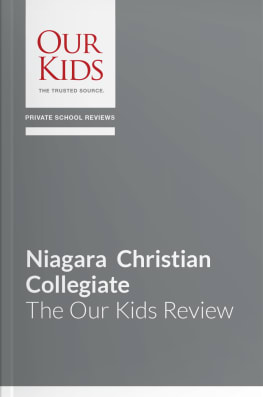
Key words for Niagara Christian Collegiate: Faith-based. International. Supportive.
Basics
Just 15 minutes south of Niagara Falls, NCC offers day and boarding school for students in Grades 6 to 12. Approximately two-thirds of the students are international, coming from as far away as Africa, Asia, and South America to as near as the United States. Upward of 15 nationalities are represented on campus each year, with the rest of the student body commuting from nearby townships—proof of NCC’s strong reputation in the region.
The peaceful, scenic route along the Niagara Parkway to get to NCC sets the stage for the serenity of the campus. Turning into the driveway, several handsome buildings come into view. The overall impression is of a small college campus with an inviting feel.
When we visited on a brilliant sunny day, the views from the school onto the Niagara River were stunning. “I love that it’s an open campus,” says humanities teacher Laura Bailey. “We have such beautiful landscaping, and all four seasons here are lovely. Students get the experience of moving to different buildings for their classes, much like on a university campus, yet it’s more self-contained. The school is like its own little world.”
That’s exactly how the campus feels to visitors: a welcoming community that’s set apart from the fray of urban life. The vast 120 acres of greenspace is the site of all types of outdoor activities, from cross-country running and campfires to school-wide games. Students can also walk and bike the trails just outside of the school’s limits. “Parents tend to be very attracted to the fact that we’re outside the city in a safe environment,” continues Bailey. “While at the same time, our university-style campus gives students some independence and helps prepare them for university life.”
A pond sits near the centre of campus, with the boys’ and girls’ dormitories facing onto it. Several students we spoke to said they loved to sit on the benches around the pond, while other favourite spots included the back sports fields, the dining hall, and the chapel.
A visit to the dining hall at lunchtime revealed a cozy, wood-panelled space with different types of seating arranged for single diners or big groups. The light-filled, airy chapel accommodates the school’s weekly worship service, classes, and a variety of special events and gatherings. Other features include a full-sized gym, fitness centre, music room, on-site medical Health Centre, and a large meeting space for boarding students called the “Wrec Centre” (a popular spot for movie nights and ping pong). “Our size allows us to provide everything students need to have a full and positive experience—whether they live on campus or not,” says Baird.
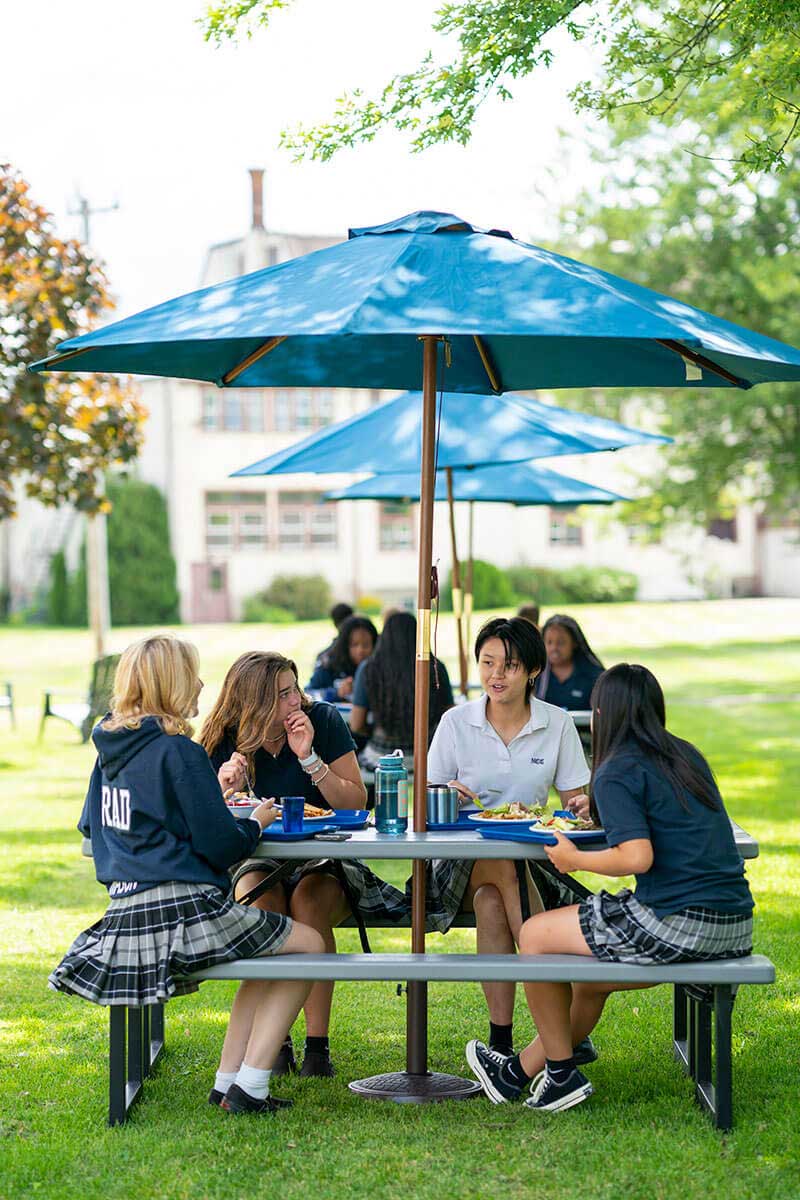
Background/Religion
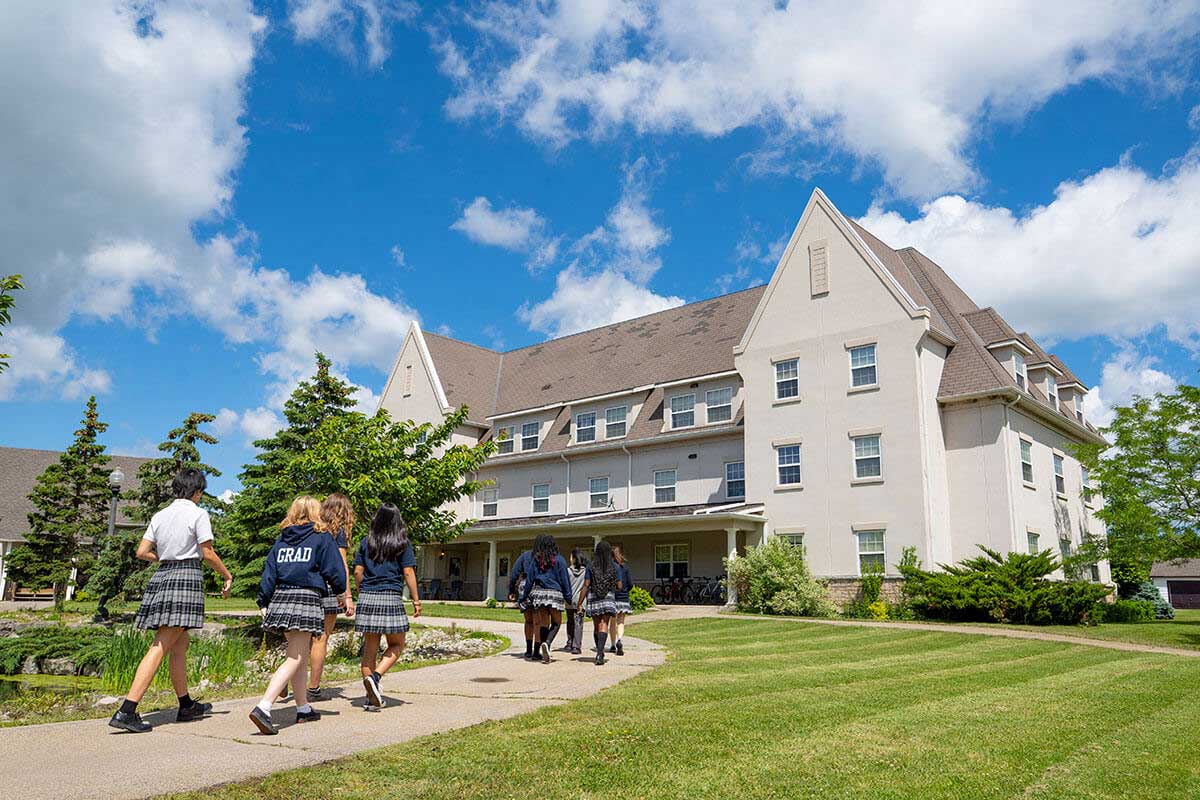
Leadership
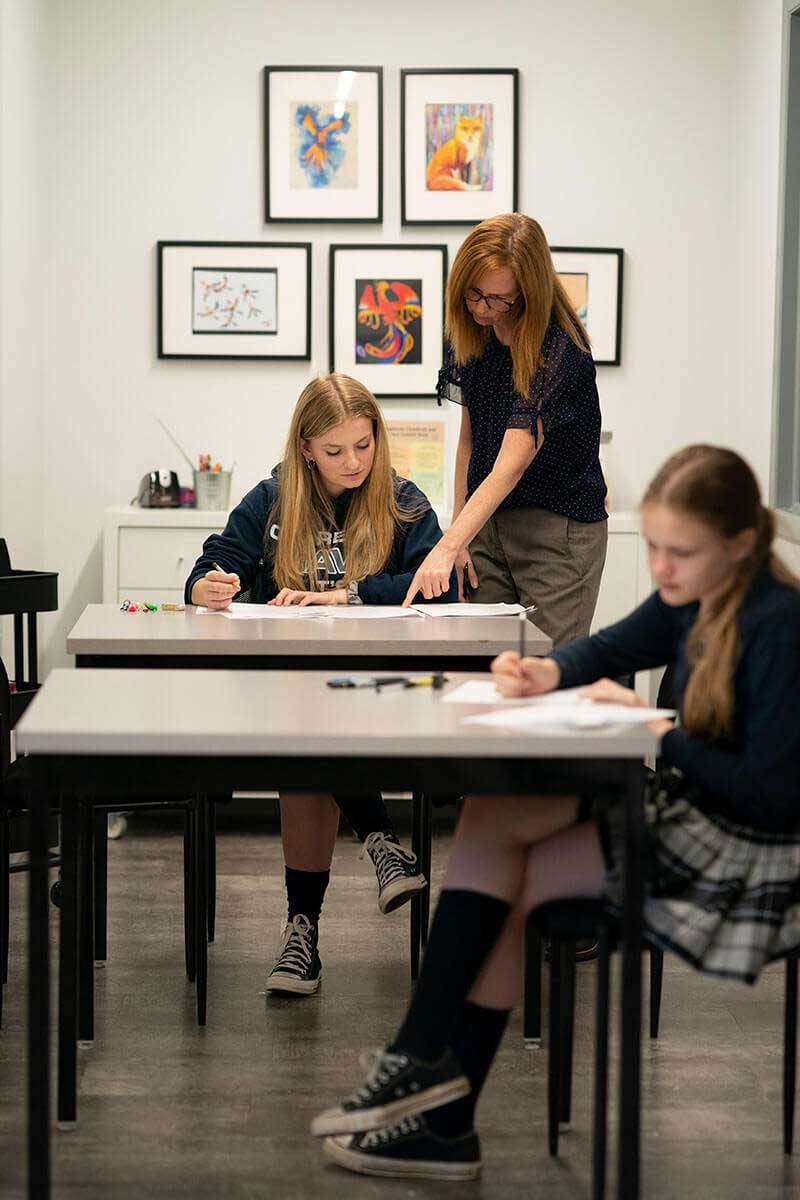
Academics
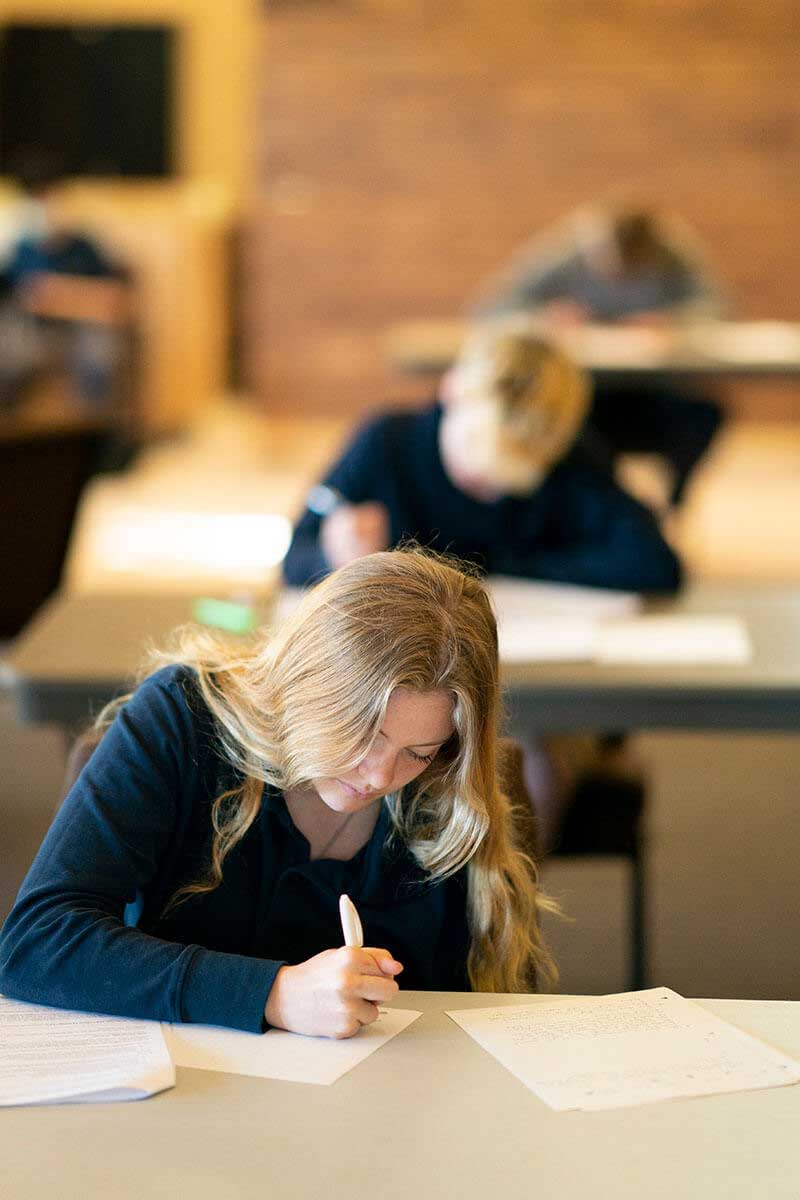
Academics: International Students
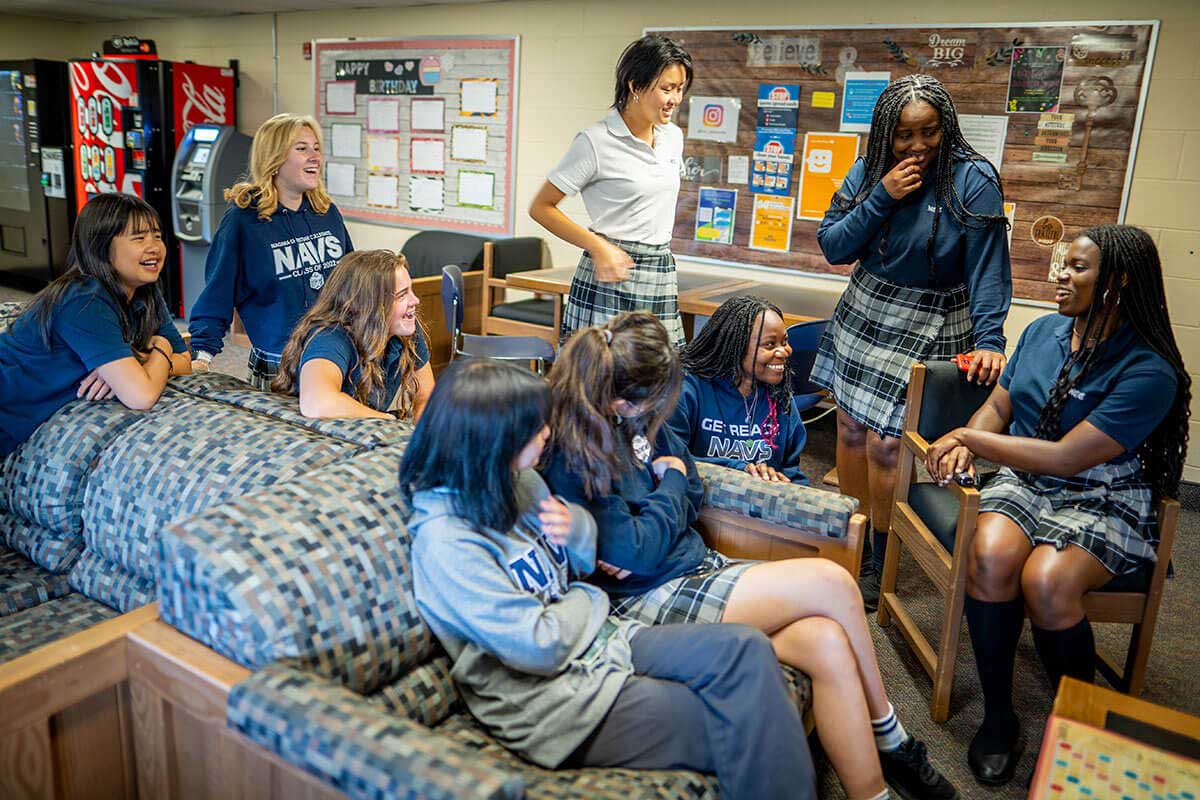 From the moment international students arrive at NCC to the day they graduate, they get the right academic support at the right time. Everything is tailored to students’ individual needs, based on their pre-existing English language skills and unique academic strengths.
After educating international students at NCC for 50 years, the school has developed academic expertise in ensuring students are well-served during their time there. NCC makes a point of constant improvement by staying in touch with graduates to assess their experience and preparedness for post-secondary education.
The NCC staff work with certified immigration consultants in the recruitment process, so families can be assured that their children’s transition to Canada will be as smooth as possible. Once students get settled on campus, the first step is an assessment of their English-speaking ability, says director of international education Jackie Angi-Dobos. “Based on that assessment, we prepare two individualized documents for every student, and those are shared with all of their teachers. One is called ‘can-do statements,’ which outline all the things teachers can expect the student to be capable of, and the other are accommodations that teachers should make in the regular curriculum.”
The range of English language proficiency in new international students can be quite wide from year to year, but NCC has a robust system to handle this variation. There are several summer programs that offer students a leg up on their English language learning before they even start classes in the fall. They’re structured as both fun camps that introduce students to Canadian culture and English instruction, delivering a nice balance for the new arrivals.
There are two main arms of the International Study Program—one is to offer students customized English language instruction through ESL courses and, sometimes, private tutoring at an additional cost, and the other is to immerse students in regular academic courses. “That second piece is critical,” says Baird. “Learning alongside their English-speaking peers, as well as other international students, naturally fosters their skills. And of course, our teachers play a huge role in this process. We like to say that every one of our teachers is an ESL teacher, in that they can support English language learners in whatever courses they teach.”
Specialist teachers teach all five levels of ESL credit courses, offering students the chance to improve their abilities as they move through the grades. At the same time, international students take core courses at their grade level, bolstered by intensive support from regular teachers. “All of our teachers go the extra mile to help our ESL students fully understand the academic subjects at their level of English,” says Angi-Dobos.
Teachers rely heavily on Angi-Dobos’ expertise and in-depth understanding of every international student’s unique competency. “She goes into classrooms and offers suggestions, makes observations, and provides the teachers with ideas such as creating word banks or translating assignments,” says Campbell. “We also recognize the process of international students’ work, so even if they might still be learning about grammatical structures, we can evaluate them on the sophistication of their thoughts and ideas in an essay. We look for ways that students can be successful, even when they’re feeling a little bit nervous about the clarity of their communication. This often means discussion-based assessment as they get more comfortable writing in English.”
In the last years of high school, international students who have studied in Canada for fewer than three years must take the International English Language Testing System (IELTS) test—a proficiency test accepted for application to higher education. NCC has extensive experience in preparing students for success on this exam, says Angi-Dobos. “We’re also an IELTS testing centre, so our students don’t have to travel elsewhere to take the test and can stay in a comfortable environment.”
The support for international students extends well past preparing for this entrance test, as crucial as it is. The entire NCC community dedicates itself to creating a safe, inclusive, welcoming environment for the young people who travel across the world to study at the school. It helps, of course, that NCC has decades of experience with a global student body. “I couldn’t believe it when we started getting the grandchildren of our first international students from Hong Kong,” says Angi-Dobos. “It says a lot about our reputation there.”
The school makes a concerted effort to celebrate its international character, for example by marking the holidays celebrated by different nations represented at NCC. There’s also a much-loved International Week, where students share their cultural foods, traditions, and games, culminating with a talent show. “We’re always working to honour our international students’ roots, history, and culture,” says Angi-Dobos. At the same time, NCC nurtures international students’ knowledge of Canadian history and culture through classroom learning, school events, and trips across the community and country.
As for students’ take on NCC’s international character, we heard nothing but positive comments. “With so many of us from different countries, even in my first year I felt comfortable, not unusual or different,” says one student from Hong Kong. Her classmate from Turkey described the cultural learning benefits, saying, “Living in the dorms, we have students from many different places. For example, my roommate last year was from Nigeria, and she taught me so many things about politics, songs, and traditions there. This year my roommate is from Japan, so now I’m learning all about that country. It’s really good.”
The benefits go both ways, offering local NCC students the unique opportunity to live and learn with classmates from across the world. “My son loved the diversity in his classes, and he chose to have an international roommate at university,” says one parent of a local graduate. Other parents talked about how their children sometimes take NCC’s global character for granted. “Sometimes I’ll say, ‘Isn’t it great to sit next to kids from all over the world?’ And my kids will just shrug. It’s completely normal for them. This is a fantastic element of the school that you won’t find anywhere else.”
From the moment international students arrive at NCC to the day they graduate, they get the right academic support at the right time. Everything is tailored to students’ individual needs, based on their pre-existing English language skills and unique academic strengths.
After educating international students at NCC for 50 years, the school has developed academic expertise in ensuring students are well-served during their time there. NCC makes a point of constant improvement by staying in touch with graduates to assess their experience and preparedness for post-secondary education.
The NCC staff work with certified immigration consultants in the recruitment process, so families can be assured that their children’s transition to Canada will be as smooth as possible. Once students get settled on campus, the first step is an assessment of their English-speaking ability, says director of international education Jackie Angi-Dobos. “Based on that assessment, we prepare two individualized documents for every student, and those are shared with all of their teachers. One is called ‘can-do statements,’ which outline all the things teachers can expect the student to be capable of, and the other are accommodations that teachers should make in the regular curriculum.”
The range of English language proficiency in new international students can be quite wide from year to year, but NCC has a robust system to handle this variation. There are several summer programs that offer students a leg up on their English language learning before they even start classes in the fall. They’re structured as both fun camps that introduce students to Canadian culture and English instruction, delivering a nice balance for the new arrivals.
There are two main arms of the International Study Program—one is to offer students customized English language instruction through ESL courses and, sometimes, private tutoring at an additional cost, and the other is to immerse students in regular academic courses. “That second piece is critical,” says Baird. “Learning alongside their English-speaking peers, as well as other international students, naturally fosters their skills. And of course, our teachers play a huge role in this process. We like to say that every one of our teachers is an ESL teacher, in that they can support English language learners in whatever courses they teach.”
Specialist teachers teach all five levels of ESL credit courses, offering students the chance to improve their abilities as they move through the grades. At the same time, international students take core courses at their grade level, bolstered by intensive support from regular teachers. “All of our teachers go the extra mile to help our ESL students fully understand the academic subjects at their level of English,” says Angi-Dobos.
Teachers rely heavily on Angi-Dobos’ expertise and in-depth understanding of every international student’s unique competency. “She goes into classrooms and offers suggestions, makes observations, and provides the teachers with ideas such as creating word banks or translating assignments,” says Campbell. “We also recognize the process of international students’ work, so even if they might still be learning about grammatical structures, we can evaluate them on the sophistication of their thoughts and ideas in an essay. We look for ways that students can be successful, even when they’re feeling a little bit nervous about the clarity of their communication. This often means discussion-based assessment as they get more comfortable writing in English.”
In the last years of high school, international students who have studied in Canada for fewer than three years must take the International English Language Testing System (IELTS) test—a proficiency test accepted for application to higher education. NCC has extensive experience in preparing students for success on this exam, says Angi-Dobos. “We’re also an IELTS testing centre, so our students don’t have to travel elsewhere to take the test and can stay in a comfortable environment.”
The support for international students extends well past preparing for this entrance test, as crucial as it is. The entire NCC community dedicates itself to creating a safe, inclusive, welcoming environment for the young people who travel across the world to study at the school. It helps, of course, that NCC has decades of experience with a global student body. “I couldn’t believe it when we started getting the grandchildren of our first international students from Hong Kong,” says Angi-Dobos. “It says a lot about our reputation there.”
The school makes a concerted effort to celebrate its international character, for example by marking the holidays celebrated by different nations represented at NCC. There’s also a much-loved International Week, where students share their cultural foods, traditions, and games, culminating with a talent show. “We’re always working to honour our international students’ roots, history, and culture,” says Angi-Dobos. At the same time, NCC nurtures international students’ knowledge of Canadian history and culture through classroom learning, school events, and trips across the community and country.
As for students’ take on NCC’s international character, we heard nothing but positive comments. “With so many of us from different countries, even in my first year I felt comfortable, not unusual or different,” says one student from Hong Kong. Her classmate from Turkey described the cultural learning benefits, saying, “Living in the dorms, we have students from many different places. For example, my roommate last year was from Nigeria, and she taught me so many things about politics, songs, and traditions there. This year my roommate is from Japan, so now I’m learning all about that country. It’s really good.”
The benefits go both ways, offering local NCC students the unique opportunity to live and learn with classmates from across the world. “My son loved the diversity in his classes, and he chose to have an international roommate at university,” says one parent of a local graduate. Other parents talked about how their children sometimes take NCC’s global character for granted. “Sometimes I’ll say, ‘Isn’t it great to sit next to kids from all over the world?’ And my kids will just shrug. It’s completely normal for them. This is a fantastic element of the school that you won’t find anywhere else.” Pedagogical Approach
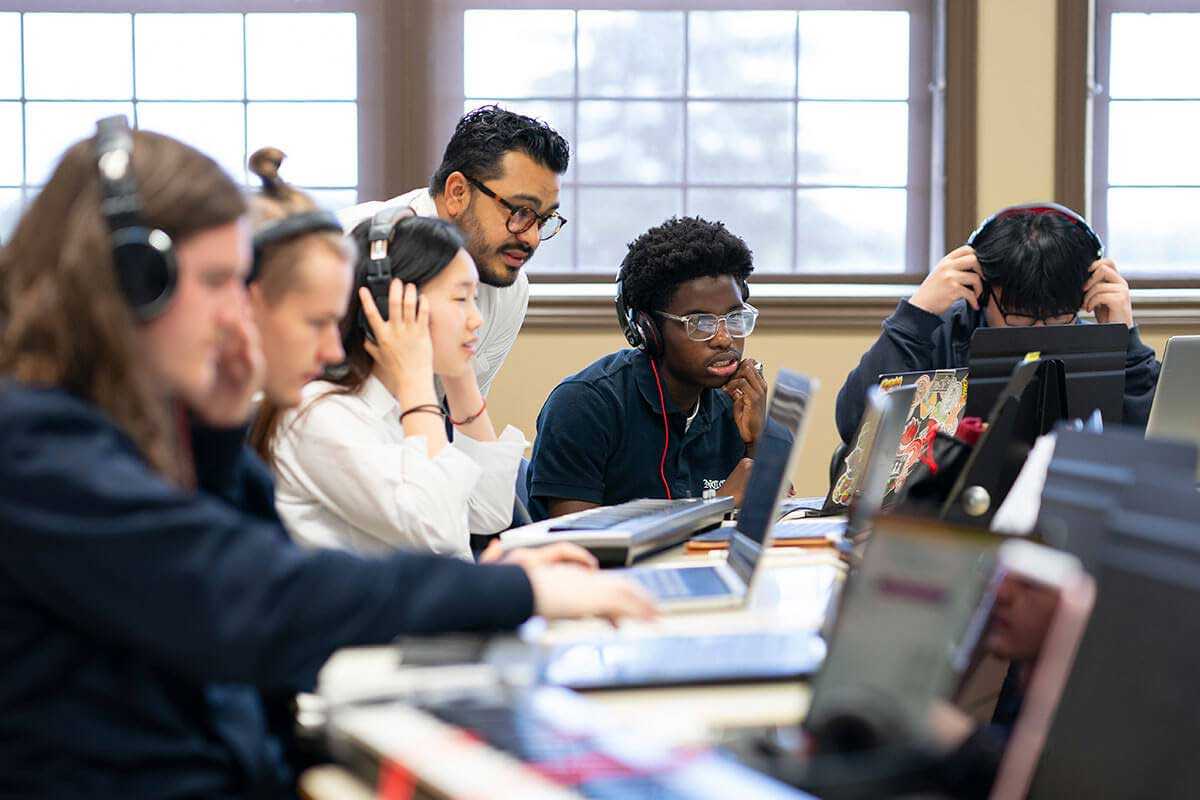
Co-curriculars
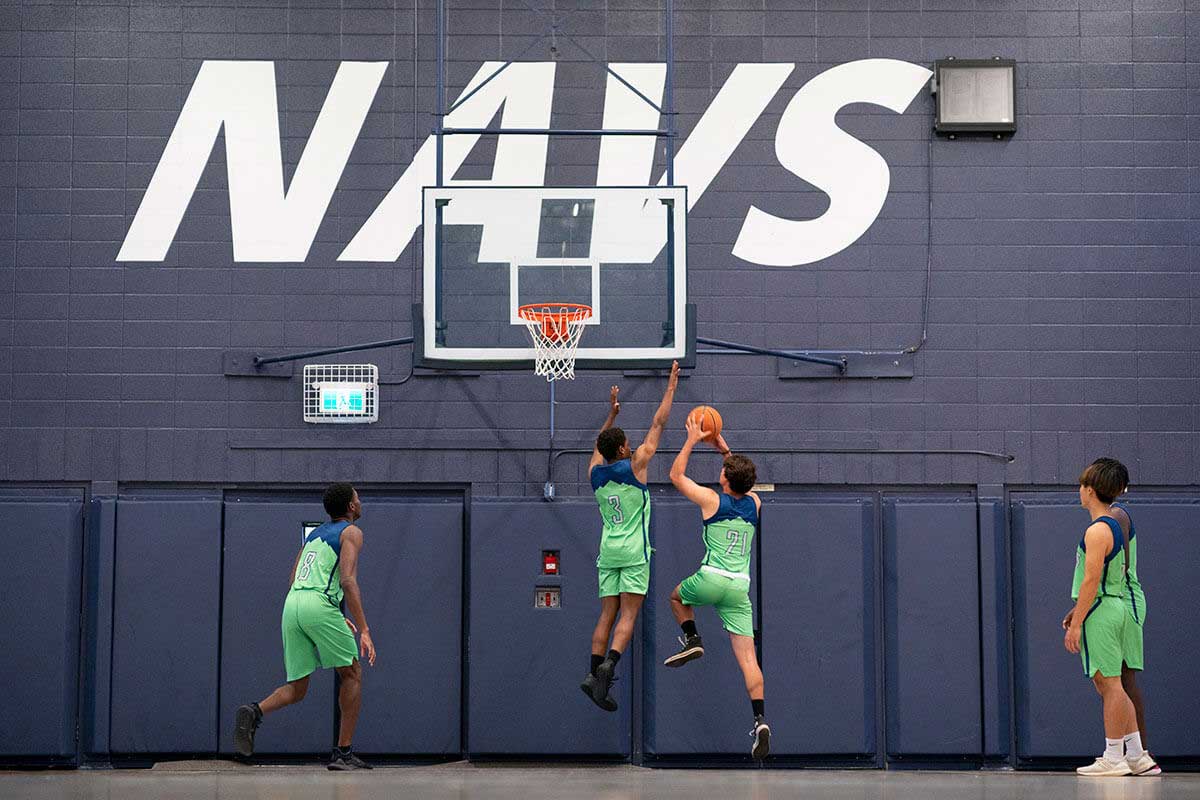
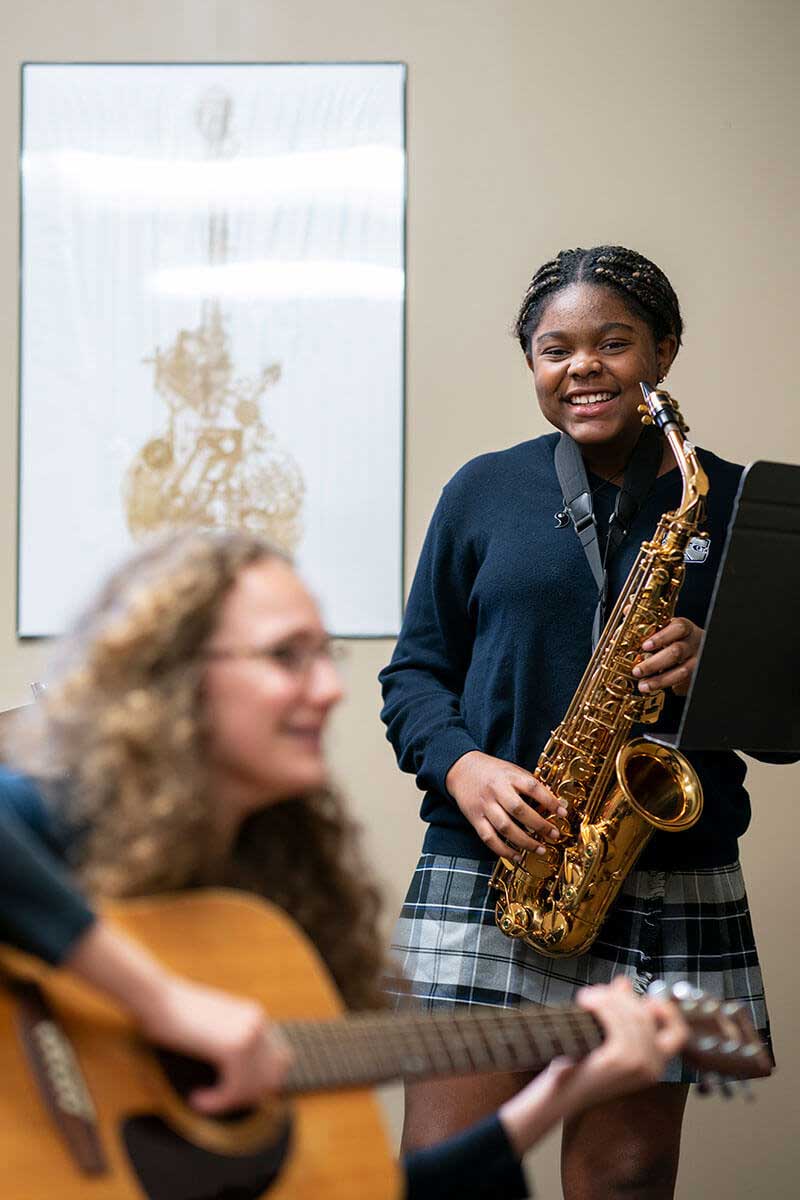
Academic Support
Wellness
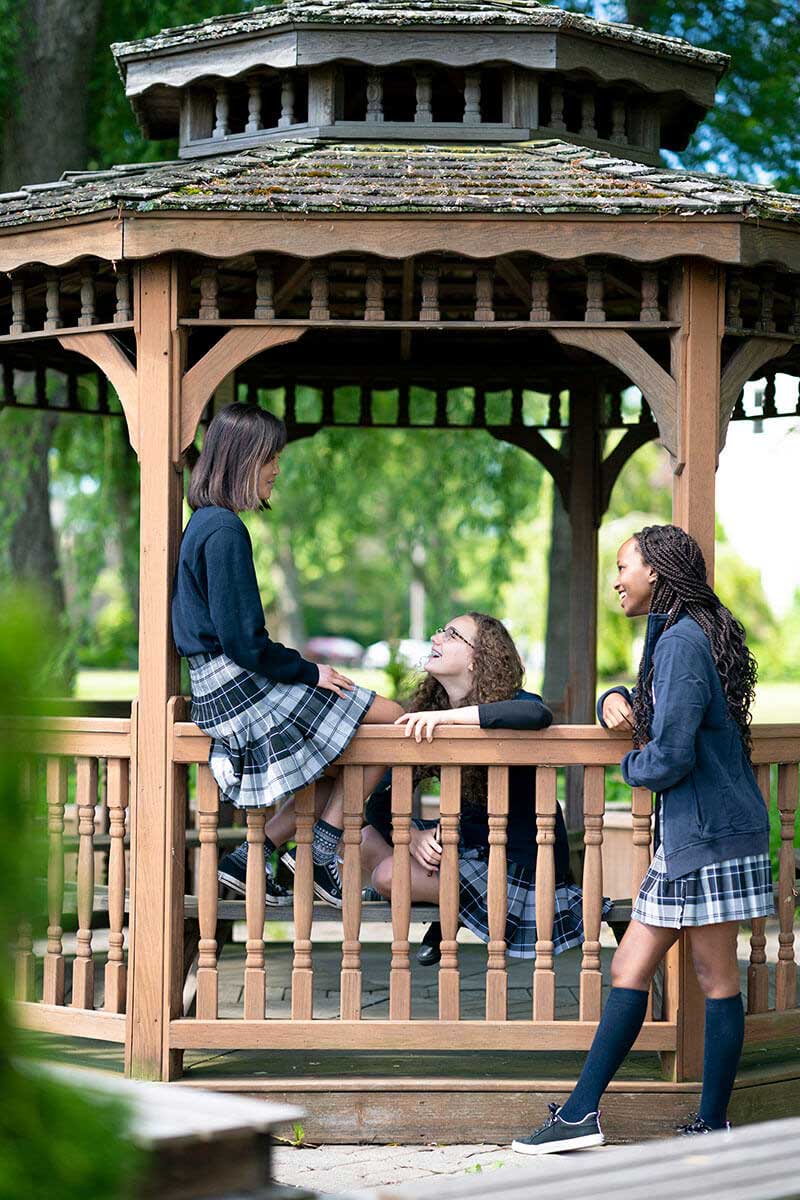
Student Body / Diversity
Applying to NCC
Parents
The Takeaway
